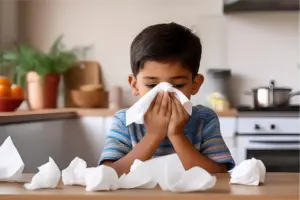
Autoimmune patients: Nearly 70% of people living with autoimmune diseases are women, a pattern Indian specialists say must be treated as a major women’s health issue.
Speaking at the 40th Annual Conference of the Indian Rheumatology Association (IRACON 2025) in Dwarka, leading rheumatologists linked the higher burden to hormonal shifts, genetic predisposition and distinct biological mechanisms active between ages 20 and 50.
In a session dedicated to women’s health, experts noted that while women’s immune systems are often more effective against infections, they can also misfire and attack the body’s own tissues, causing conditions such as rheumatoid arthritis, lupus, thyroiditis, psoriasis and Sjögren’s syndrome. These disorders can affect joints, skin, blood vessels and vital organs, including the heart and lungs.
Also Read | What are the best iron-rich Indian foods for women?
New research from Stanford University was cited to explain part of the sex difference: a molecule called Xist RNA, which regulates one of the two X chromosomes in women, can sometimes confuse immune signalling and trigger self-directed attacks, adding biological weight to clinical observations from India.
Dr Neeraj Jain, Vice Chairman of Rheumatology at Sir Ganga Ram Hospital, said social and environmental factors, pollution, infections and poor lifestyle habits compound biological risks in India. Dr Pulin Gupta, Professor at Dr Ram Manohar Lohia Hospital, reported a similar 70% female predominance in his practice and warned that years of misdirected treatment are common before patients reach specialists.
Calling for policy attention, Conference Chairman Dr Rohini Handa, Senior Consultant at Indraprastha Apollo Hospitals, said autoimmune disorders are “as common as diabetes or heart disease, yet they get far less attention. When 70% of those affected are women, we can’t treat it as gender-neutral. India needs awareness campaigns, women-focused research and better access to rheumatology services.”
India faces a shortage of trained rheumatologists, fewer than 1,000 for over a billion people, underscoring the need to train primary care physicians to recognise early symptoms and refer appropriately. While autoimmune diseases are not curable, timely diagnosis and evidence-based treatment, along with exercise, balanced nutrition and stress control, can prevent disability and organ damage.
Experts urged inclusion of autoimmune disorders in public health programmes under women’s health initiatives, alongside stronger surveillance of environmental triggers. IRACON 2025 hosted delegates from more than 20 countries at the Yashobhoomi IICC, with contributions from 670 facilities and over 250 academic sessions.








